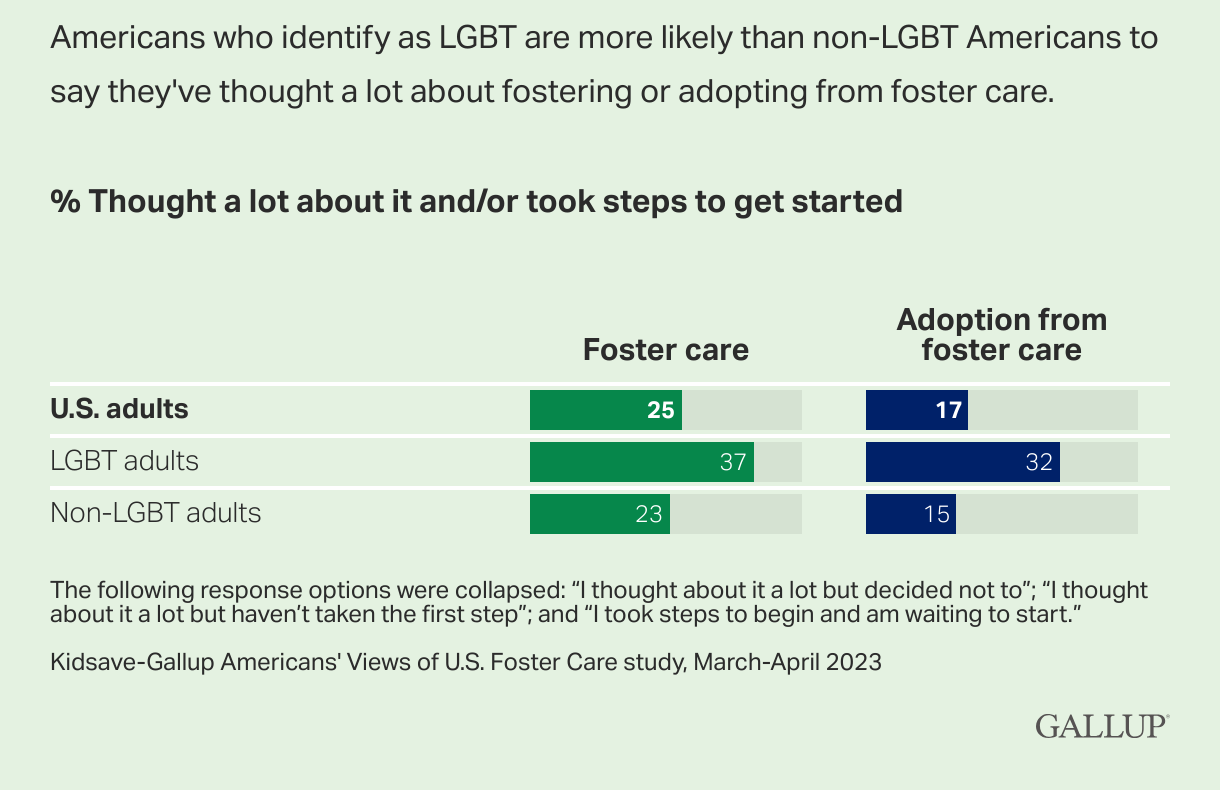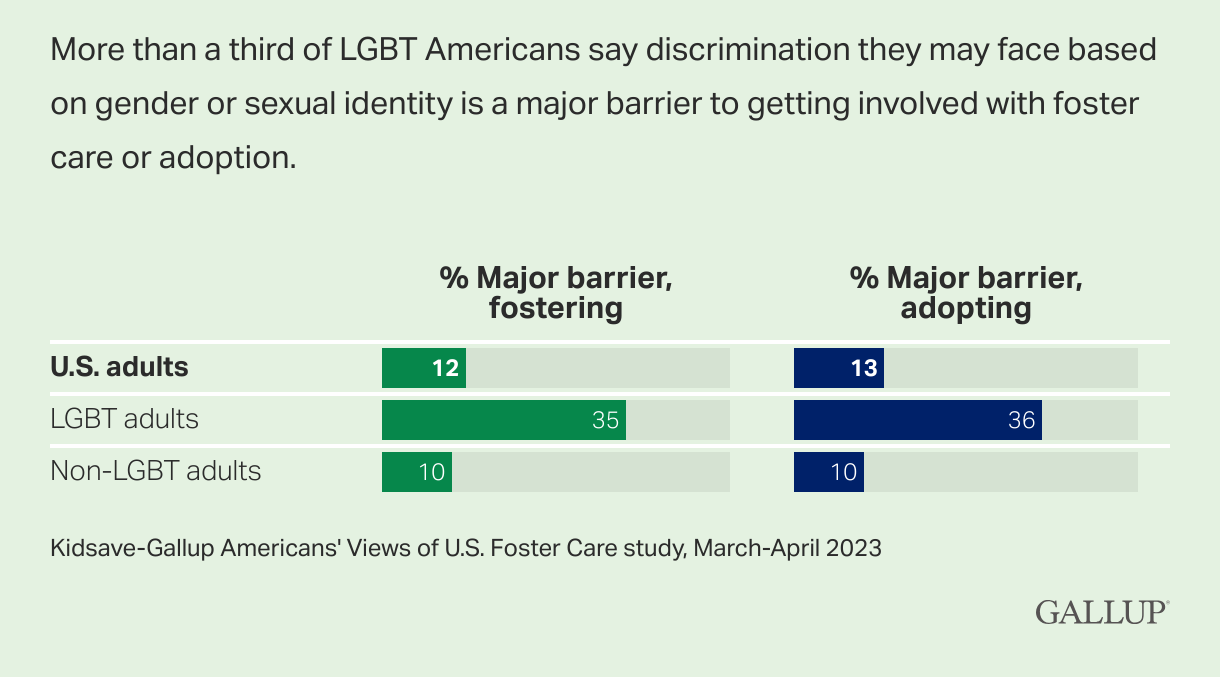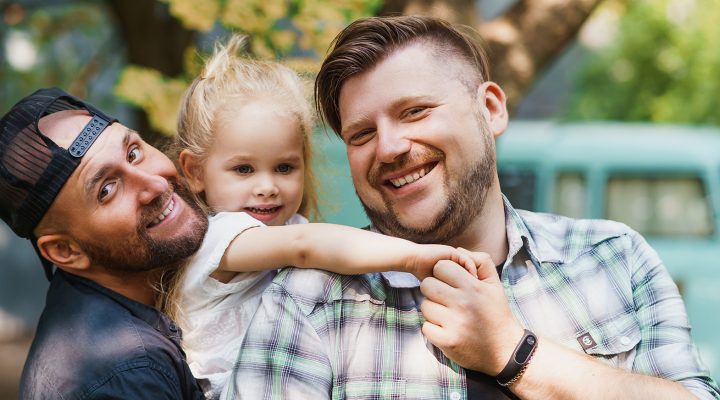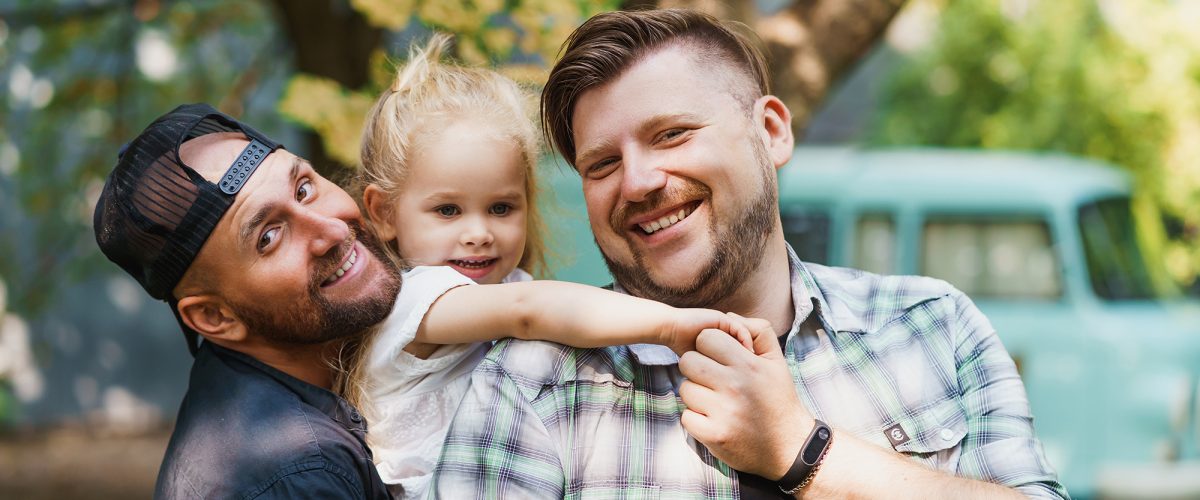As a majority of states in America continue to face a foster care crisis, one of the most interested groups in helping displaced children often fails to volunteer out of fear of rejection.
That’s the finding of new research by Gallup for Kidsave’s EMBRACE Project.
That willing but reluctant group is Americans who identify as lesbian, gay, bisexual or transgender.
Members of the LGBTQ community “are significantly more likely than non-LGBTQ adults to express an interest in fostering children and to consider adopting from the foster care system,” Gallup reports. “Thirty-seven percent of LGBTQ adults have seriously considered fostering a child, and 32% have seriously considered adoption, compared with 23% and 15% of non-LGBT adults, respectively.”
Yet those in the LGBTQ community are more than three times as likely as non-LGBTQ individuals to say possible discrimination is a major barrier, Gallup says.
“The same is true for adopting from foster care. More than a third (36%) of LGBTQ Americans say possible gender or sexual identity discrimination is a major barrier to adopting, compared with only 10% of adults who are not LGBTQ.”

According to the U.S. Department of Health and Human Services’ Administration for Children and Families, nearly 400,000 children were in the U.S. foster care system in 2021, and 100,000 of those children needed permanent families.
Year after year, state child protective services offices and foster-adoption agencies report urgent needs for help. In 2022, more than half of U.S. states reported a significant decline in licensed foster homes available, some with losses up to 61%. A key reason is new foster parents don’t stay in the system.
By all accounts, it takes a special person or couple to open their homes to children in need. Historically, churches and church-related agencies have been essential partners with state agencies in caring for displaced children. Yet many of those faith-based agencies do not want to — or will not — work with anyone in the LGBTQ community. Multiple court cases have been fought over this very issue.

It’s not just sexual and gender minorities who fear discrimination, there also are perceived racial barriers, Gallup found.
One in four Black Americans and 21% of Hispanic adults say discrimination is a major barrier to providing foster care, compared with 13% of white Americans.
Regarding the LGBTQ community, Gallup summarizes: “As of 2022, … 7.2% of the U.S. adult population identifies as lesbian, gay, bisexual or transgender. That’s an estimated 18.7 million Americans. Those who identify as LGBTQ are much more likely than the average American to have seriously considered fostering or adopting. Yet a significant portion are hesitant to get involved due to the belief that their gender or sexual identity will be a barrier. This is especially true for … men.
“Fear of facing discrimination is holding back potentially millions of LGBTQ families and individuals who are serious about caring for children in need of a home. Family service organizations raising awareness about perceptions of discrimination and addressing those concerns could potentially boost the number of LGBTQ people open to taking the first step toward fostering children or adopting from the foster care system.”
Related articles:
Biden administration rolls back Trump-era discrimination waivers in foster care
Catholic bishops drop opposition to lesbian becoming a foster parent


